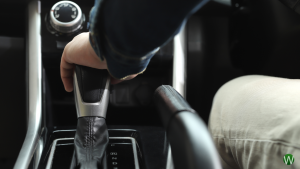Learning to drive is an important process that requires time, dedication, and effort. It involves training the mind and body to seamlessly control a vehicle while abiding by the laws of the road.
Although driving eventually becomes second nature for many people, learning can be quite stressful. Staying calm is very important, particularly in a major city.
Although the open road represents the ultimate freedom for a lot of people, the thought of heavy traffic and One-Way streets can be overwhelming. Without experience behind the wheel and knowledge of your area; city driving is daunting.
City driving poses some unique challenges. Firstly, there is generally very limited space. Between cars, vans, trucks, bicycles, buses, motorcycles, and other vehicles found in a city, the roads become packed every day. Throw in a few million pedestrians staring at their phones and it becomes even busier. Spacial awareness is crucial as you navigate through traffic lights and vehicles.
While you may not drive regularly at higher speeds, city driving requires a more precise and measured approach. The majority of maneuvers that you pull off will be done at low speed but in tight spaces. Parking, three-point turns, and other routine actions become trickier in such scenarios.
Arguably the most important aspect of driving is to remain calm at all times. As a skill that necessitates a lot of mental focus, clarity and calmness are essential. Staying calm on the road is easier said than done, especially when you’re a beginner in a large city.
With this in mind, here are five top tips to help you stay calm when you’re learning to drive.
Choose the right driving instructor
Having a fully qualified, experienced, and diligent driving instructor is essential. In order to pick up good habits and a calm demeanor on the road, you must learn from a good teacher. While learning from a parent or friend can be beneficial, they don’t have the specialist training, knowledge, or experience of a qualified instructor.
Choosing the right instructor also involves picking someone who you are comfortable with. Feeling safe, supported, and confident on the road can be strongly influenced by the people you share the car with. A good instructor will understand that learner drivers are likely to be nervous. They will use their experience to keep you calm and confident while establishing good driving habits.
An important thing to consider when choosing a driving instructor is that you can communicate effectively with them. You need to be able to speak to them about your nerves or queries. It’s also essential to be able to ask them questions. There are no stupid questions when it comes to skill building so don’t hesitate with any and all enquiries.
Do your research and choose an instructor with a great reputation.
Get regular lessons
Staying calm on the road is no easy feat, especially when you’re a learner. Experience and time spent behind the wheel are important for developing calmness while driving. In order to gain this experience, you need to get regular lessons.
This will ensure that you’re putting in the necessary hours to improve your skillset and get accustomed to city driving.
There is no set amount of time that you should spend with an instructor. The necessary hours will vary from person to person. For those who are very nervous, it can be beneficial to do lessons intensively to get over their fears.
Daily lessons for a week or two can be effective in creating a calm demeanor when driving. For others, gradually increasing the number of lessons as they approach their driving test date can be good for preparation.
It’s important to note that driving lessons aren’t cheap. If you’re struggling to pay for regular lessons, be strategic with scheduling and ensure that you practice in between sessions.
Off the road matters too
While time behind the wheel is invaluable, there are things you can do outside of the car that will help you stay calm when driving. Approaching driving with a positive mental state can help immensely.
Nervous drivers often struggle to relax their bodies before and during journeys. Try some meditative breathing techniques to relax your body and clear your mind prior to driving. This can help reduce anxiety and dissociate negative feelings when you drive.
Another useful technique for calming yourself is to visualise your trip. Concentrate on a smooth drive and go through the motions of the journey in your mind. It can also help to imagine life after you secure your license.
Think of the calmness you’ll feel when you have been granted the ultimate driving freedom.
In life, setting goals helps with achievements. Set small goals to find a focus when driving. Targets are useful for creating clarity, which may have a calming influence on you. Goals can also demonstrate your progress when you look back on them, further improving your confidence.
Get familiar with your car
Calmness and comfortability go hand in hand. Spend time in your car and learn about its various features. Get comfortable behind the wheel and try to establish a positive association with being in the driver seat.
This doesn’t mean you have to understand how each part of the engine works. It simply means learning the basics of the interior and under the bonnet. You should be familiar with what and where the dipstick, engine coolant tank, washer fluid reservoir, and brake fluid reservoir are.
By understanding what these items are and do, you will be more confident and calm in your car.
Learn from your mistakes
You must acknowledge that all learner drivers make mistakes. It’s normal to have some issues on the road when you’re starting out. It’s a part of progression. What’s more important is that you can move on from your mistakes and learn from them. Remember that isolated incidents or one tough day on the road don’t define you as a driver.
Reflect on each driving lesson, finding positives, and noting your mistakes. Writing things down after driving sessions is a good way of doing this. By mentally overcoming your mistakes, you’re more likely to stay calm if you encounter those scenarios again.






